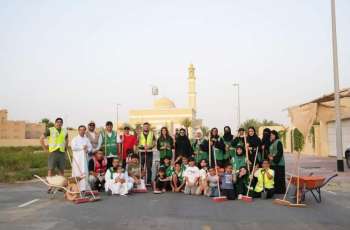MOSCOW (Pakistan Point News / Sputnik - 05th June, 2020) The coronavirus pandemic and anti-COVID measures, including curfews and lockdowns, may cause the levels of hunger and chronic illnesses to significantly rise in the middle Eastern region, the International Committee of the Red Cross (ICRC) said in a press release.
"Public health measures like lockdowns and curfews have made it difficult or impossible for many people to provide for themselves and their families, often compounding existing economic difficulties. Over time, loss of income and livelihoods could see levels of hunger, malnutrition and chronic illness and soar," the ICRC said on Thursday.
According to ICRC, millions across the regions have already been struggling before the global health crisis, as people "live with little or no healthcare, food, water and electricity, as well as volatile prices and destroyed infrastructure."
In particular, 98 percent of Iraqis surveyed by the ICRC said that the pandemic had affected their business. At the same time, the impact of COVID-19 directly affected 300,000 Syrians who signed for a government-sponsored social benefits program. Moreover, Syrian refugees in Jordan "who had started businesses with the support of the ICRC" lost most of their income amid in light of the pandemic.
In addition, COVID-related lockdown was a major challenge for many Gaza residents as restrictions affected many businesses there. Meanwhile, for Lebanon, the health crisis is just another issue "on top of months of a deteriorating economic situation."
The ICRC called to increase social protection programs across the region, and include the most vulnerable people, "such as low-income workers, households headed by women, farmers and people with disabilities" in them.
"The ICRC is appealing for 1.2 billion Swiss francs ($1.24 billion US Dollars) to respond in places of conflict and violence, to support medical facilities and places of detention, curb the spread among and ensure medical access for displaced people and detainees, and to support National Red Cross and Red Crescent Societies, whose thousands of volunteers and workers are doing vital work on the frontline of this crisis," the ICRC said.
The organization urged the international donors and humanitarian actors to respond to the pandemic and bear in mind the region's other issues. The ICRC has voiced concerns that the humanitarian crisis in the Middle East might worsen if "the international community doesn't factor socio-economic aftershocks" in the coronavirus response.



